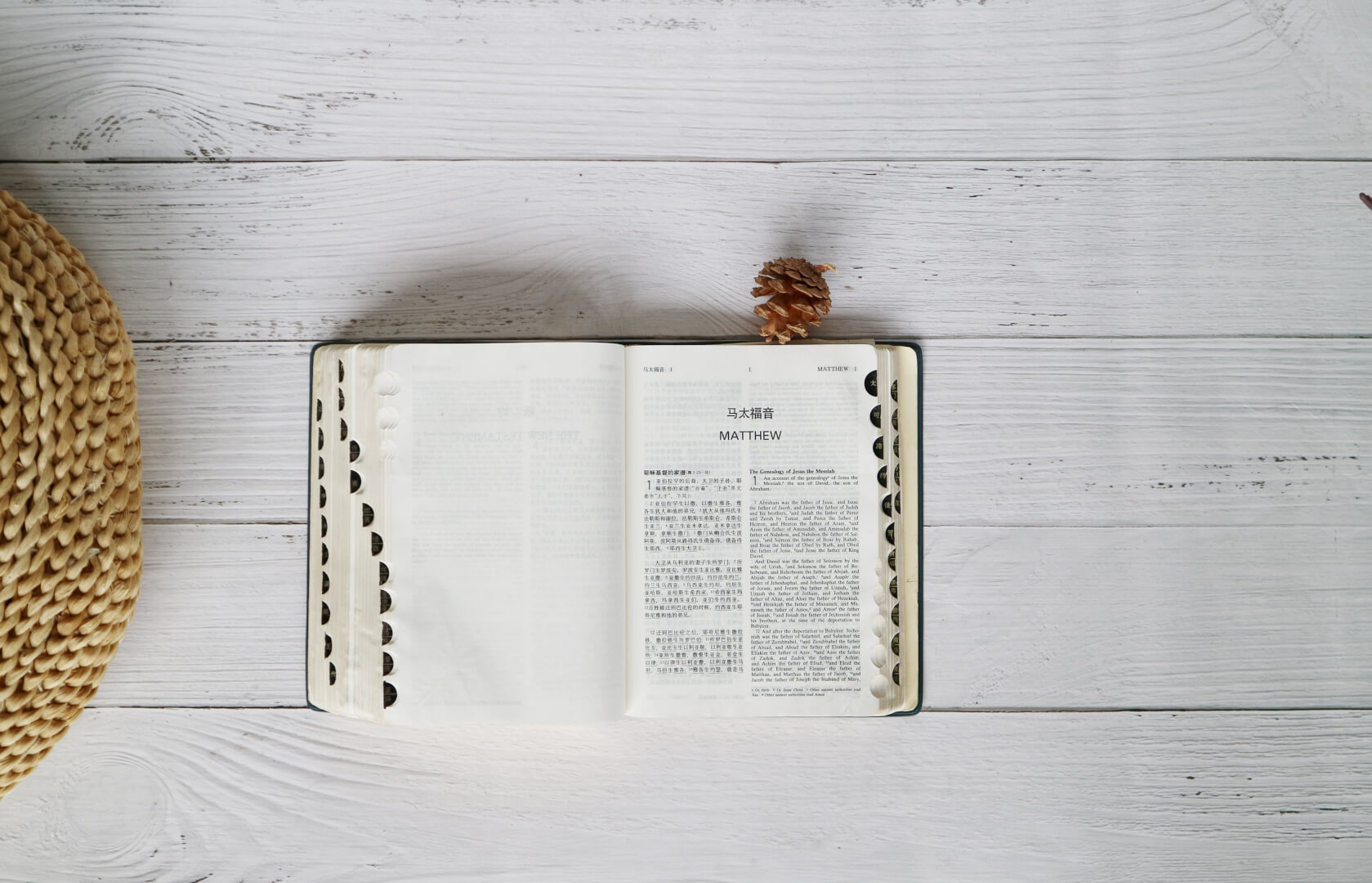If you’ve ever been to the Vigil Mass for Christmas, you may know the experience of getting all dressed up on Christmas Eve, singing O Come All Ye Faithful with your fellow parishioners, and entering into this beautiful liturgy with a festive spirit. And then comes the Gospel and you remain standing while the priest proclaims the long, long list of the genealogy of Jesus. You may have wondered why the Church proclaims this particular part of the Gospel when we could be hearing about angels singing, shepherds watching, and other beautiful scenes.
While it may seem like the Church should just nix this part of the reading (and indeed, many do use the shortened form that skips the genealogy), it is part of the Christmas Vigil Mass for a reason – and that is because there is great significance to be found in the genealogy of Jesus.
On a recent episode of Father Simon Says™, Fr. Richard Simon dove into the beginning of the Gospel of Matthew, and explained some of the meaning and significance behind the genealogy of Jesus.
“For us, genealogies are amazingly boring,” he admitted. “But for ancient people they were very important. They located things in time, for one. They didn’t have BC and AD, and they didn’t have calendars and clocks the way we do. There were all sorts of different calendars. … So these located things in time.”
In addition to its practical significance, the people included in the genealogy point to certain ways in which Jesus fulfills God’s plan of salvation. Fr. Simon pointed out, “There are other important things in this genealogy. I’m not sure that Rahab was the Rahab who hid the spies, but that’s a thing I’ve heard commentators say a great deal. But Boaz married Ruth, who was a foreigner. So there are potentially two foreign women here, and that is about the universality of the call of God. So Ruth, who was a woman from Moab was the great grandmother of King David.”
One thing that you may notice in the genealogy of Jesus is that it ends with Joseph, the husband of Mary. But why would that be the case if Joseph was only the foster-father of Jesus?
Father Simon explained, “They are both genealogies of Joseph, and Joseph was not the father of Jesus. He did not beget Jesus. It says he is the husband of Mary. … And it’s interesting that in the Gospel of Luke it’s beget, beget, beget. But it talks about Jesus differently.”
This was important particularly for the Gospel of Matthew, which often speaks of Jesus fulfilling the Messianic prophecies. Jesus being a legal descendant of Joseph makes him an heir to the throne of David. Fr. Simon explained, “When you’re born, you’re Jewish if your mother is Jewish. However, your place in society is inherited through your father. … Jesus could be a monarch only descended from Joseph. You have to be descended through the male line in order to be an heir to the throne. Joseph is the one who has to be involved for it to be clear that He is entitled to the throne.”
Learn about more significant elements of Jesus’ genealogy below:
Father Simon Says airs weekdays at 2:00 p.m. Eastern/11:00 a.m. Pacific on Relevant Radio® and the Relevant Radio App.


